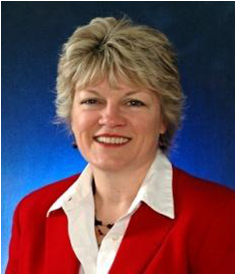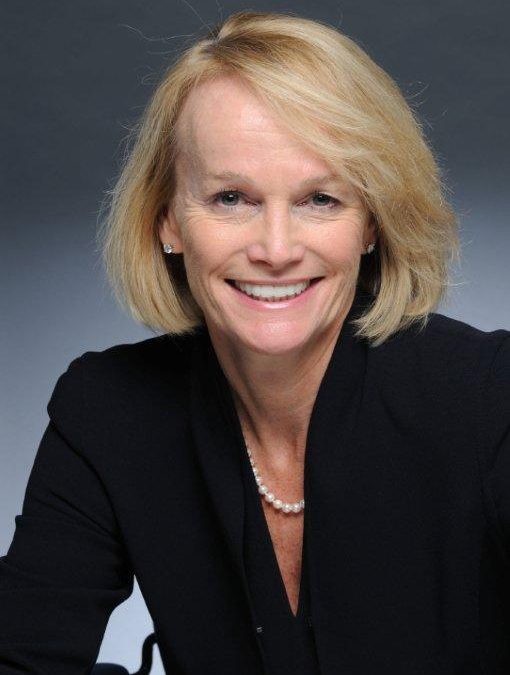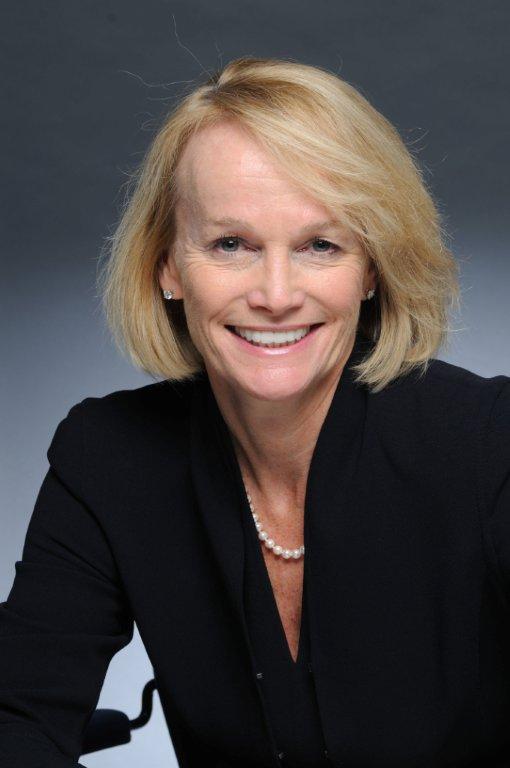
by Fronetics | Dec 21, 2016 | Blog, Diversity, Leadership, Logistics, Manufacturing & Distribution, Strategy, Supply Chain, Talent
Women hold just 15% of all executive officer positions within Fortune 500 companies, yet research consistently shows that when women are in positions of leadership, companies perform better. In the supply chain industry, just 5% of top-level supply chain positions within Fortune 500 companies are held by women.
As a woman working within the supply chain industry, I believe that it is important to discuss the lack of gender diversity and point to research highlighting why the industry needs to increase the number of women in all positions, including the C-suite. It is just as important to highlight the incredible women who already are working within the industry.
In 2015 I interviewed Cathy Morris, senior vice president and chief strategy officer at Arrow Electronics, and Mickey North Rizza, vice president of strategic services at BravoSolution. Morris was twice named one of the “Top 50 Most Powerful Women in Technology,” and North Rizza was named a “Top Female Supply Chain Executive.” Both Morris and North Rizza shared how they got started in the industry, and the steps they have taken to get to where they are today.
In 2016 I interviewed Kendrea Durr-Smith, director of global trade compliance at Arrow Electronics, Kelli Saunders, President of Morai Logistics, Hailey McKeefry, editor and chief at EBN, and Barbara Jorgensen, co-founder and managing editor, EPS News. I also invited Tania Seary, founder of Procurious, to share what is happening at her company, and Jennifer Cortez, director of marketing and communications at Transplace, to discuss the role of quality content within the industry.
Here are the most-read women in the supply chain posts of 2016.
It was a “fluke” that Kelli Saunders found the supply chain industry. More than 30 years later, Saunders is president of Morai Logistics Inc., an Authorized Agent of Mode Transportation. Read more.
When Arrow Electronics came across Kendrea Durr-Smith, senior leader of export control audits, training, and communications at Honeywell Aerospace, on LinkedIn, the company was impressed with what she had accomplished in her nine years there. Now Arrow’s Director of Global Trade Compliance for the last four years, Durr-Smith has led a group that is both unique and diverse, and has helped to shepherd in significant changes. Read more.
Data shows that gender equality has improved in recent decades, such as the 15% increase of women working full time in the workforce since 1979. But there is still much progress to be made. As a recent UN Working Group mission to the US to explore discrimination against women found: “In the US, women fall behind international standards as regards [to] their public and political representation, their economic and social rights, and their health and safety protections.” Read more.
Women within the supply chain industry are doing incredible things. Here are some of their stories. Read more.
While there remains a gender gap in the supply chain industry, progress has been made. McKeefry is a clear example of progress. Her internship at EBN in 1990 was a “minority internship,” and today, 26 years later, she holds a leadership position within the company. Read more.
Barbara Jorgensen has more than 20 years’ experience as a journalist, working for leading electronics industry publications such as Electronic Business, Electronic Buyers’ News, and EDN. She is the co-founder and managing editor of EPS News. Read more.
This is a guest post written by Tania Seary, founder of Procurious, the world’s first online social network for supply chain and procurement professionals. Seary shares how she has built Procurious. Read more.
This is a guest post by Jennifer Cortez, Director, Marketing Communications, Transplace. Cortez discusses how Transplace, a North American non-asset-based provider offering manufacturers, retailers, chemical and consumer packaged goods companies the optimal blend of logistics technology and transportation management services, has used content marketing and she offers up 3 tips for creating valuable and compelling content. Read more.


by Fronetics | Mar 21, 2016 | Blog, Leadership, Strategy, Supply Chain
 When Arrow Electronics came across Kendrea Durr-Smith, senior leader of export control audits, training, and communications at Honeywell Aerospace, on LinkedIn, the company was impressed with what she had accomplished in her nine years there. Now Arrow’s Director of Global Trade Compliance for the last four years, Durr-Smith has led a group that is both unique and diverse, and has helped to shepherd in significant changes.
When Arrow Electronics came across Kendrea Durr-Smith, senior leader of export control audits, training, and communications at Honeywell Aerospace, on LinkedIn, the company was impressed with what she had accomplished in her nine years there. Now Arrow’s Director of Global Trade Compliance for the last four years, Durr-Smith has led a group that is both unique and diverse, and has helped to shepherd in significant changes.
Durr-Smith’s department is unique. “The majority of functional departments at Arrow are regional- or site-specific,” she says; “however, because trade compliance is global by nature, our department is global in scope.” This means that Durr-Smith’s team is diverse, and “not just in terms of gender, but also in terms of background and culture. Learning about these differences and learning how we can best work together has, at times, proven challenging, but is critical to success,” she explains.
Success is something Durr-Smith has achieved. Arrow has made significant changes in the last few years in an effort to better support the needs of customers and suppliers. Durr-Smith and her team have assumed new responsibilities with respect to trade management and compliance in order for these new efforts to be ushered in.
To support these corporate changes and her department’s new responsibilities, Durr-Smith’s department has changed. Three of the most recent hires are women. What is exciting to Durr-Smith is how these women got to where they are today.
“Two of the three women we recently hired are self-educated,” she says. “They were interested in trade compliance, and they educated themselves on the field and took steps to make a career change. This is exciting — exciting that they actively wanted to be involved in this field, and exciting that they were proactive in getting to where they are today.”
Durr-Smith’s enthusiasm for these women’s accomplishments is genuine and speaks to her general ethos. When asked what leadership advice she could provide to others, she offered the following:
“Take on new or different responsibilities whenever possible. Place individuals in different functional areas, and focus on the benefits afforded to both the company and the individuals. Also, focus on helping people grow, and focus on supporting others.”
Thinking about pursuing a career in trade management and compliance? Durr-Smith offers this advice:
“Be flexible. Be patient. Have a good sense of humor. In the field of trade management and compliance, these characteristics are essential.”

by Fronetics | May 28, 2015 | Blog, Leadership, Strategy, Supply Chain, Talent
 Cathy Morris, senior vice president and chief strategy officer for Arrow Electronics, Inc., talks women in the supply chain and offers up career advice
Cathy Morris, senior vice president and chief strategy officer for Arrow Electronics, Inc., talks women in the supply chain and offers up career advice
Men hold 95% of top level supply chain positions within Fortune 500 companies. Outside the corner office things aren’t much better; between 70% and 80% of positions within the supply chain industry are held by men. Cathy Morris, senior vice president and chief strategy officer for Arrow Electronics, Inc., defies these statistics. Morris discusses her career and the gender gap in an interview:
Only a small percentage of top level positions in Fortune 500 companies are held by women. Within the supply chain industry this percentage is even smaller. How did you get to where you are today?
I’d like to say that I chose the supply chain, but the reality is that I stumbled into it. I was working in finance as a corporate controller when the company for whom I was working was purchased by Arrow. My position was eliminated; however, an individual within Arrow came to me and suggested that I stay with the company albeit in a different department. He suggested that I take my practical experience in finance and my expertise in making businesses better and “do something different.” I did do something different – I went from being a corporate controller to running a series of warehouses.
Products can be made, money can be invested, ideas can be brought to fruition, but without the supply chain everything stops. The supply chain provides routes to market; everything hinges on an effective supply chain.
I decided I need to identify what I needed to know so that I could sit at the table. I invested between 12 and 18 months in roles, from logistics to sales, throughout the company. When I started each role I identified what I could learn from the role, what I could contribute, and what milestone I could attain.
As one of the few women in the supply chain and one of the few women in an executive position what challenges have you experienced?
While I have had incredible mentors few have been women. There are, as you said, not a lot of women at the table. I would say that 90% of the time I am the only woman in the room.
What can women who are in the supply chain do to support each other and how can the supply chain attract more women to the field?
It is the responsibility of women to invest in each other and to help each other. This is important in building a better organization. A better organization is not about the numerical statistics related to diversity. A better organization is about better decision-making. Diversity is essential for companies; diversity enables better decision making and diminishes group think.
Change starts from the top down. If you are interviewing for a position and everyone is of the same gender and race, be bold – ask if inclusion is a top priority for the company. Ask what the company is doing to increase diversity.
The supply chain needs to be rebranded. The perception is that when you work within the supply chain you are a second class citizen. The reality is that in the absence of an effective supply chain the entire value proposition of a Company falls apart. This is what we need to get out there.
What career advice can you offer?
Every career decision you make needs to reflect your personal goals; focus on the culture of company and how the position will enable you in your career.
When you leave a job it needs to be for a purpose. You should never leave a job because you don’t like it, rather you should leave a job because you have achieved what you set out to do within that job.
If you don’t like your job, sit back and assess why you don’t like. When you determine this, change what you don’t like about the job.
One of the most common reasons people leave their job is because they don’t like their boss. This is not a reason to leave. Bad bosses provide more learning than good bosses. With bad bosses you learn what not to do – this is invaluable.
You manage your own career. As long as you continue to manage your career you will be happy. Once you stop managing it, you’ll be unhappy.
Cathy Morris is the senior vice president and chief strategy officer for Arrow Electronics, Inc.. Morris leads strategic initiatives for Arrow, including global merger and acquisition activity. She brings nearly 30 years of experience in the computer products and electronic components distribution industry, having previously served as president of Arrow’s enterprise computing solutions segment after holding senior positions in support service, finance and corporate development.
Prior to joining Arrow in 1994, Morris held financial leadership roles in the banking and manufacturing industries. She is a board member and chairs the audit committee for Graftech International, and she is a member of the Global Leadership Council at Colorado State University and the YWCA’s Society of Women Achievers.
In March 2015 Cathy Morris, was named to the National Diversity Council’s 2015 “Top 50 Most Powerful Women in Technology.” This is the second consecutive year Morris has been honored with this distinction.

by Fronetics | May 28, 2015 | Blog, Leadership, Strategy, Supply Chain, Talent
 Cathy Morris, senior vice president and chief strategy officer for Arrow Electronics, Inc., talks women in the supply chain and offers up career advice
Cathy Morris, senior vice president and chief strategy officer for Arrow Electronics, Inc., talks women in the supply chain and offers up career advice
Men hold 95% of top level supply chain positions within Fortune 500 companies. Outside the corner office things aren’t much better; between 70% and 80% of positions within the supply chain industry are held by men. Cathy Morris, senior vice president and chief strategy officer for Arrow Electronics, Inc., defies these statistics. Morris discusses her career and the gender gap in an interview:
Only a small percentage of top level positions in Fortune 500 companies are held by women. Within the supply chain industry this percentage is even smaller. How did you get to where you are today?
I’d like to say that I chose the supply chain, but the reality is that I stumbled into it. I was working in finance as a corporate controller when the company for whom I was working was purchased by Arrow. My position was eliminated; however, an individual within Arrow came to me and suggested that I stay with the company albeit in a different department. He suggested that I take my practical experience in finance and my expertise in making businesses better and “do something different.” I did do something different – I went from being a corporate controller to running a series of warehouses.
Products can be made, money can be invested, ideas can be brought to fruition, but without the supply chain everything stops. The supply chain provides routes to market; everything hinges on an effective supply chain.
I decided I need to identify what I needed to know so that I could sit at the table. I invested between 12 and 18 months in roles, from logistics to sales, throughout the company. When I started each role I identified what I could learn from the role, what I could contribute, and what milestone I could attain.
As one of the few women in the supply chain and one of the few women in an executive position what challenges have you experienced?
While I have had incredible mentors few have been women. There are, as you said, not a lot of women at the table. I would say that 90% of the time I am the only woman in the room.
What can women who are in the supply chain do to support each other and how can the supply chain attract more women to the field?
It is the responsibility of women to invest in each other and to help each other. This is important in building a better organization. A better organization is not about the numerical statistics related to diversity. A better organization is about better decision-making. Diversity is essential for companies; diversity enables better decision making and diminishes group think.
Change starts from the top down. If you are interviewing for a position and everyone is of the same gender and race, be bold – ask if inclusion is a top priority for the company. Ask what the company is doing to increase diversity.
The supply chain needs to be rebranded. The perception is that when you work within the supply chain you are a second class citizen. The reality is that in the absence of an effective supply chain the entire value proposition of a Company falls apart. This is what we need to get out there.
What career advice can you offer?
Every career decision you make needs to reflect your personal goals; focus on the culture of company and how the position will enable you in your career.
When you leave a job it needs to be for a purpose. You should never leave a job because you don’t like it, rather you should leave a job because you have achieved what you set out to do within that job.
If you don’t like your job, sit back and assess why you don’t like. When you determine this, change what you don’t like about the job.
One of the most common reasons people leave their job is because they don’t like their boss. This is not a reason to leave. Bad bosses provide more learning than good bosses. With bad bosses you learn what not to do – this is invaluable.
You manage your own career. As long as you continue to manage your career you will be happy. Once you stop managing it, you’ll be unhappy.
Cathy Morris is the senior vice president and chief strategy officer for Arrow Electronics, Inc.. Morris leads strategic initiatives for Arrow, including global merger and acquisition activity. She brings nearly 30 years of experience in the computer products and electronic components distribution industry, having previously served as president of Arrow’s enterprise computing solutions segment after holding senior positions in support service, finance and corporate development.
Prior to joining Arrow in 1994, Morris held financial leadership roles in the banking and manufacturing industries. She is a board member and chairs the audit committee for Graftech International, and she is a member of the Global Leadership Council at Colorado State University and the YWCA’s Society of Women Achievers.
In March 2015 Cathy Morris, was named to the National Diversity Council’s 2015 “Top 50 Most Powerful Women in Technology.” This is the second consecutive year Morris has been honored with this distinction.





